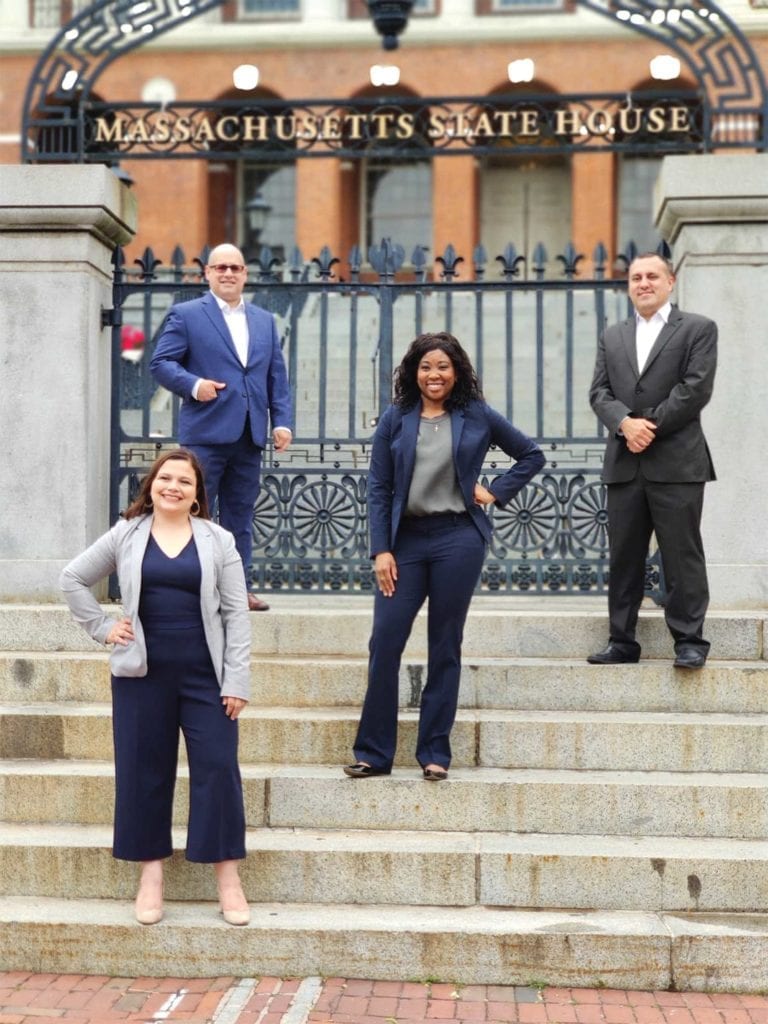Talia Barrales: A Dreamer fulfilling her dream
Talia Barrales recently launched her new firm, Barrales Public Affairs

When Talia Barrales launched her new firm, Barrales Public Affairs, in June, she turned to the same guiding principles that made her now multi-million-dollar firm Barrales Law so successful — hard work for the community, by the community.
“When I started the law firm, it was never about the money, it was about growing from a client-centered place,” Barrales says.
Her new firm offers consulting on government relations and strategic communications to help clients connect with policymakers, news media and local communities, especially communities of color.
As a “Dreamer” — an immigrant who came to the United States undocumented as a young child — she understands the importance of providing clients with advocates who understand the challenges they face, so she employs staff from the same communities she serves.
Barrales is a former organizer, and her work at Barrales Law Firm naturally included public affairs as she recognized the need to look beyond the courtroom to create effective change and partnerships with organizers and nonprofits.
The anti-immigration laws passed by the Trump administration made her job harder, though she won the 2018 case Justo v. Sessions in the First Circuit Court of Appeals, which set legal precedent for asylum seekers, particularly those escaping gang violence.
It wasn’t until the Massachusetts Legislature once again balked on passing legislation that would allow undocumented immigrants to apply for driver’s licenses that she realized how large the divide between constituents and government officials is.
“I was door-knocking for this issue in East Boston when I was in law school,” Barrales says. “So to see that we still haven’t passed it is disheartening.”
That, on top of the threat of revocation of Temporary Protective Status (TPS) and work permits for undocumented immigrants, pushed Barrales to move more fully into public affairs.
“It goes hand-in-hand with my legal work,” Barrales says. “If it wasn’t for the work I do at the law firm, it wouldn’t have been such a natural transition to a public affairs firm.”
Barrales says she was perfectly poised to use her insight as an immigration attorney to advocate for her clients across the board.
“My role is so much larger than just being their attorney. I’m their connection with elected officials,” she says.
Barrales realized just how little legislators understand the communities they serve when she was assisting with legislation regarding workers’ compensation during COVID-19 and had to explain the concerns undocumented immigrants have with receiving medical care — for example, concerns about ICE becoming involved when they attempt to seek treatment.
This connection between immigration and health care is one of the many reasons Barrales brought in Dr. Ellana Stinson to the Barrales Public Affairs executive team. As president of the New England Medical Association, where she focuses on building community among black physicians, and former medical director of the emergency department at East Boston Neighborhood Health Center, Stinson has a unique view into the disparities immigrant communities face when seeking medical care.
“We bring to the table issues that people in power aren’t even looking at,” Barrales says. “We’re one step ahead in terms of what we think needs to happen in order to address, for example, health disparities and social justice issues.”
As she looks to the future of her public affairs firm, Barrales is not preoccupied with financial benchmarks.
“My goal is just to have the same kind of growth I had in my law firm,” she says.
Launched in 2013 and already a multi-million dollar company, her first firm is not a bad model to follow.
“For me, my benchmark is something that I’m going to be proud of, that my son is going to be proud of. The law firm is exactly that. We look out for each other, we’re this big family, and it resonates with our clients and with our success.”
Barrales Public Affairs is growing into a fairly big family too — it already has five partners, a project manager and an administrative assistant, as well as a team of independent contractors and creatives.
The executive team also includes Doug Chavez, a former senior retail analyst for Sean “P. Diddy” Combs’ clothing line, Sean John, and later an official in Gov. Deval Patrick’s administration.
“I’d known Talia for several years and had thought her story was amazing and that she was doing great work with her law firm, so I definitely wanted to be a part of it,” says Chavez. “There’s no firm like it — the public affairs space is mostly controlled by white males, so it was a great opportunity. I decided to join forces and break into the space.”
Chavez’s work with Barrales has included work on U.S. Sen. Ed Markey’s campaign for reelection.
Eldin Villafañe is another partner at Barrales who was excited at the opportunity to work at a public affairs firm run by people of color.
“I grew up in a family where faith and social justice were connected, and from that background I decided to go to law school, so I wanted to be part of a group that attacks issues from all angles, and this seemed like a perfect fit,” says Villafañe. “This is a tough moment, but also an opportunity to fill a space that hasn’t been filled yet, which is lobbying as Black and brown executives of color — you don’t see that often.”
At the end of the day, Barrales says, she is simply trying to bridge a gap that she does not believe should exist in the first place — the gap between the public, private and nonprofit sectors in social change work.
“In a state like Massachusetts, it is very important to be intentional in how we move forward,” she says. “We can’t afford the divisions that larger states have. In a state like ours, it is really important that we work together toward that greater good.”






